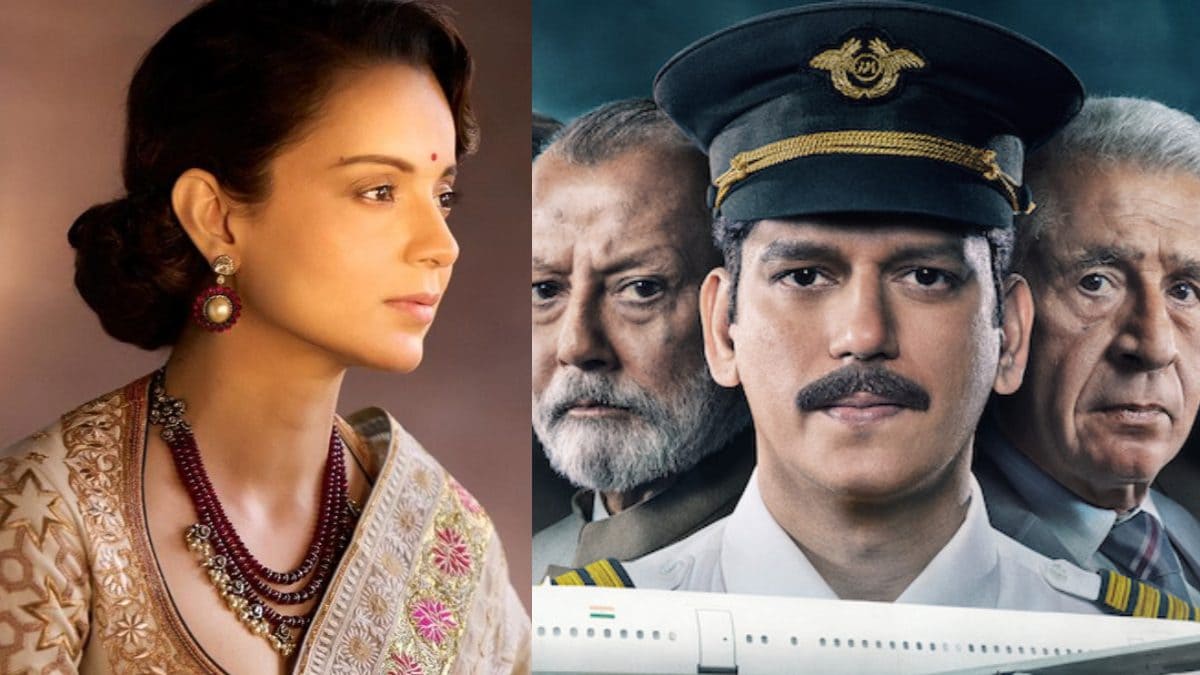The release of the web series “IC 814: The Kandahar Hijack” has sparked controversy, with accusations of historical distortion and a political agenda fueling the debate. Kangana Ranaut, a prominent Bollywood actress, has joined the fray, expressing her discontent over the alleged manipulation of facts and contrasting it with the censorship faced by her upcoming film “Emergency.” This controversy has ignited a larger discussion on the responsibility of creative freedom versus historical accuracy, particularly within the context of OTT platforms.
The Controversy: Hijacking History or Seeking Artistic License?
The core of the controversy lies in the series’ portrayal of the hijackers’ names. While the real-life hijackers were known by their actual names like Ibrahim Athar and Shahid Akhtar Sayed, the series uses aliases like Bhola, Shankar, and Doctor. This has led to accusations of deliberate distortion of history, especially by BJP leader Amit Malviya, who claims that the series seeks to legitimize the hijackers by obscuring their Muslim identities and creating an impression that Hindus were responsible for the act. This claim fuels fears of a larger political agenda to “whitewash” the actions of terrorists and absolve certain groups of responsibility.
The Argument for Artistic License
The creators of the series, however, defend their decision by citing the use of aliases by the hijackers themselves. Neelesh Misra, the writer of the book that inspired the series, clarifies that the hijackers indeed used false names to avoid identification, emphasizing that the show accurately reflects this aspect of the incident. This explanation attempts to justify the name changes as a means to maintain historical accuracy, arguing that it faithfully captures the reality of the hijacking situation.
Kangana Ranaut: A Voice of Discontent
Kangana Ranaut, known for her outspoken views, has entered the debate with sharp criticism directed at the alleged distortion of historical facts in the series. She highlights the seeming double standard in censorship: while “IC 814: The Kandahar Hijack” is released without apparent scrutiny, her film “Emergency” has faced significant hurdles with the Central Board of Film Certification (CBFC). Ranaut perceives this disparity as unjust, portraying it as a reflection of the differing treatment meted out to creators based on their political leanings.
The Question of Censorship
Kangana’s comments underscore the ongoing debate regarding censorship in the Indian film industry. The accusations against “IC 814: The Kandahar Hijack” raise concerns about the use of artistic license potentially veering into the territory of historical distortion. This incident throws light on the challenges of balancing creative freedom with historical accuracy, particularly when sensitive events are being depicted.
Beyond “IC 814: The Kandahar Hijack”: A Wider Conversation
The controversy surrounding “IC 814: The Kandahar Hijack” goes beyond the specific narrative and touches upon broader concerns regarding historical representation, artistic freedom, and censorship. This debate sheds light on the potential pitfalls of creative reimagining of real events, particularly when such events are associated with political and religious sensitivities.
Navigating History and Art
The case of “IC 814: The Kandahar Hijack” serves as a stark reminder of the complex interplay between historical accuracy and creative expression. The incident raises important questions about the responsibilities of filmmakers, the boundaries of artistic license, and the role of censorship in navigating the intersection of history, art, and political discourse.
Takeaway Points
- Balancing History and Artistic License: The controversy surrounding “IC 814: The Kandahar Hijack” highlights the delicate balance between maintaining historical accuracy and utilizing creative freedom.
- Political Undercurrents: The debate surrounding the series exposes the potential for political agendas to influence narratives, raising concerns about manipulation of facts for ideological purposes.
- The Role of Censorship: Kangana Ranaut’s comments on the double standards in censorship point to the ongoing discussion on the appropriate role of censorship in safeguarding against harmful content while protecting artistic expression.
- Importance of Open Discourse: This incident underscores the need for open and informed discourse on how historical events are portrayed in art and media. Open discussion is crucial to ensuring responsible and accurate representations of history.




